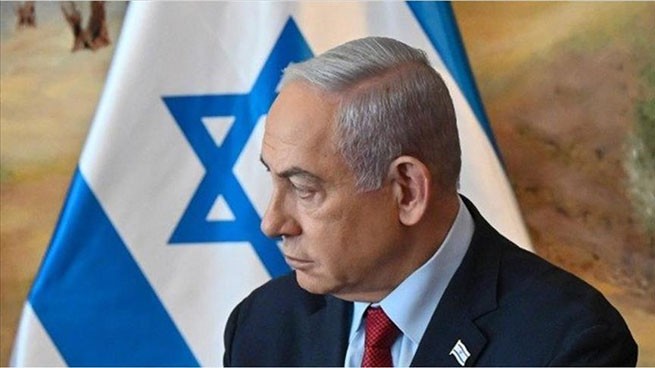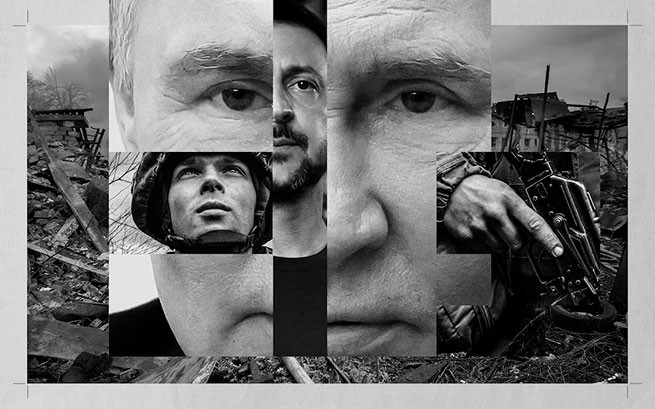The British publication is publishing a series of essays from international commentators presenting the consequences of Russia's success in the war against Ukraine. The first, written by ex-deputy of the Verkhovna Rada Alena Khlevko, examines the devastating consequences for the NATO alliance and the world order.
Putin's plot to destroy NATO is reaching its destructive climax. A Russian victory would trigger a cascade of events that would lead to irreversible changes and bring the world to the brink of chaos.
Khlivko predicts that after the victory over Ukraine, some NATO members will try to take advantage of the alliance's weakness. Hungary could become the first European country to turn against its allies. Turkey could also pursue its own interests in the Black Sea by undermining the security of other NATO members such as Romania and Bulgaria.
China will take advantage of NATO weakness to assert dominance in the Indo-Pacific region and invade Taiwan. This could provoke the DPRK to attack South Korea.
African peoples, under the influence of Russian propaganda, can challenge the foundations of the order established by the UN. Some Latin American countries will follow a similar trajectory.
Established democracies will find themselves marginalized and powerless as they struggle to restore unity and authority amid the turmoil. It will take decades to restore order in a new, completely changed world (if, of course, they are given a chance. Editor’s note).
***
Ukraine is fighting not just for its existence as a nation – it is a battle for the very fabric of the global order. Yes, we are talking about protecting European security – this call is heard in countless statements by Western officials, often accompanied by assurances of the limitations of air defenses and ammunition. But as Ukraine continues to lose land, cities and lives, the West's response remains lukewarm, with the only strong position around NATO's borders, where geopolitical concerns overshadow humanitarian concerns.
But what if Putin dares to cross these borders, dismissing Western threats as empty talk? What if Ukraine falls, giving Putin the opportunity to continue his expansion into other countries of the former Soviet Union that he believes are part of the Russian Empire? Will NATO really deliver on its promise of collective security, or is this promise just empty rhetoric? The fact is that NATO's resilience is more fragile than we think. And Putin's victory could cause the world's most successful alliance to begin to crumble.
NATO's strength lies not only in its military might, but also in its unwavering commitment to collective defense, enshrined in Article 5. However, Article 5 only obliges members to consider responses. “The parties agree that… if such an armed attack should occur, each of them… will take such actions as it deems necessary…” is all that Article 5 says. These actions can mean anything from sending warship on invasion patrol to a simple expression of deep concern.
Countries on NATO's eastern flank, such as Estonia and Poland, are at war, shaming NATO by doing much more than is formally required. Estonia is well ahead of its NATO allies in defense spending at 3% of GDP, and Poland is already preparing for a potential war with Russia. According to Polish military sources, they do not intend to wait for Russian boots to set foot on Polish soil; the war may well begin on Russian territory itself. If Ukraine falls and Russian aggression is directed at NATO allies such as the Baltic states or Poland, expect NATO to fragment or even be replaced by countries that cannot afford to remain exposed to the weaknesses of their so-called allies.
Recent statements by the head of Polish counterintelligence, Jaroslaw Strzyk, emphasize that Putin is fully prepared for a small military operation in the eastern territories, targeting, for example, the Estonian municipality of Narva or an encroachment on one of the Swedish islands. It is noteworthy that the Swedish Navy recently accused Russian “shadow” oil tankers plying the Baltic Sea of espionage by collecting information about operations in the port of Gotland under the guise of an “emergency dock.” Gotland is of strategic importance for the regional security of Northern Europe and plays a decisive role in the defense of neighboring Estonia, Latvia, Lithuania, Finland and Poland.
Polish intelligence concerns were echoed by Estonian, German and British officials. It is clear that Putin is constrained in his intentions only by the West's strong determination to support Ukraine.
If this resolve breaks down, the likelihood of an imminent Russian attack on NATO will increase exponentially, and the consequences will be very serious. Given the existing divisions within NATO, particularly in disagreements over issues such as Sweden's potential entry into the alliance, it is likely that many member countries will prioritize their own defense over that of their weaker allies.
It is also necessary to consider the role of the United States in the event of a Russian victory. Will they, suffering from electoral hesitations and isolationist tendencies, once again support their allies? Will it decisively send a frigate and aircraft carrier to the invasion area, or, instead, make a strong statement condemning Russia for its misbehavior and hinting to the allies under attack that they should pay more in their contributions to NATO? Will she urge a self-defending country not to escalate by fighting back too harshly and suggest finding a solution at the negotiating table?
The tension of the situation becomes obvious if we imagine the scenario of a Russian attack on one of the NATO countries. There are about 10,000 US troops in Poland, but if its borders were violated, would the US decide to cut its losses and leave? The fact that this is possible at all shows the fragility at the heart of modern NATO.
Let's imagine that Estonia is faced with an onslaught from Russia. The UK's actions will be critical given its role as Estonia's partner for an enhanced forward presence. If Estonia becomes the first NATO country to be attacked by Russia, Britain, which has more than a thousand troops there, will find itself in a state of war. But will Britain, under Labour, live up to its commitments to collective European and global defense?
If Poland or Estonia were to be attacked, Germany would be on high alert, with some 4,000 troops stationed in Lithuania. Last week, at the Adenauer conference, I had the opportunity to talk with several members of the German Bundestag, military leaders, advisers to the chancellery and even with Defense Minister Pistorius himself. To my question about whether Germany is ready for war in the event of a Russian attack, they all answered decisively “yes” – but with fear in their eyes and hesitation in their voice.
Germany is only getting closer to putting its proclaimed “Zeitenwende” into practice, while critics of the current government argue that critical momentum to remilitarize the country has been missed. Therefore, tragically, in the worst case scenario, one can easily imagine the Germans resorting to traditional diplomatic dialogue with Moscow, seeking back channels of communication with the Russians to avoid escalation, seeking compromises, further jeopardizing the unity of the continent.
The worst thing will be that some members of NATO will try to profit from the resulting chaos. Hungary, one suspects, may become the first European country to turn its back on its allies. Turkey, not seeing strength in unity, could pursue its own interests in the Black Sea, potentially not only reversing Ukraine's successes in desecrating the Russian fleet, but also undermining the security of NATO members such as Romania and Bulgaria.
As NATO in Europe cracks under pressure, the reverberations will be felt beyond the North Atlantic region. China could interpret NATO weakness as a green light to dominate the Indo-Pacific and invade Taiwan. This could push the DPRK to attack South Korea, despite the existing agreements within the QUAD framework and the prospects for expanding AUKUS. Australia and Japan will be on their own, facing an incredibly dangerous situation in the region. The UK will not be able to come to the aid of its Asia-Pacific partners in the face of Russia’s aggressive expansion in Europe.
Suffice it to say that as Russia gains momentum in Europe, China will likely expand its influence in Asia. India, watching China's expanding influence and maintaining its historic military alliance with Russia, will likely seek to strengthen its position in the Global South while attempting to maintain leverage in the UN General Assembly.
African countries, besotted with the accompanying chaos of Russian propaganda promising long-awaited justice for the perceived hypocrisy and corruption of the West, will be inclined to challenge the foundations of the order established by the UN after World War II. Some Latin American countries will follow a similar trajectory.
This hypothetical scenario may seem extreme, but it serves a purpose: if Ukraine falls, it will not just be the end of one country, it will potentially lead to the collapse of NATO and the established world order as we know it. The unleashed cascade of events will cause unimaginable and irreversible changes, bringing the world to the brink of chaos. Established democracies will find themselves marginalized and powerless as they struggle to restore unity and authority amid the turmoil. It will take decades to restore rules-based order to a new, completely rebuilt world.
This is what is at stake in Ukraine. In today's interconnected world, our collective future rests on the pillar that is my home country. We cannot let it fall.
Second essay.
The opinion of the author may not reflect the opinion of the editors.







More Stories
The New York Times shared details of the pager operation
Murder suspect Farion asks to be left alone "behind bars"
Ukrainian Diaspora Abroad